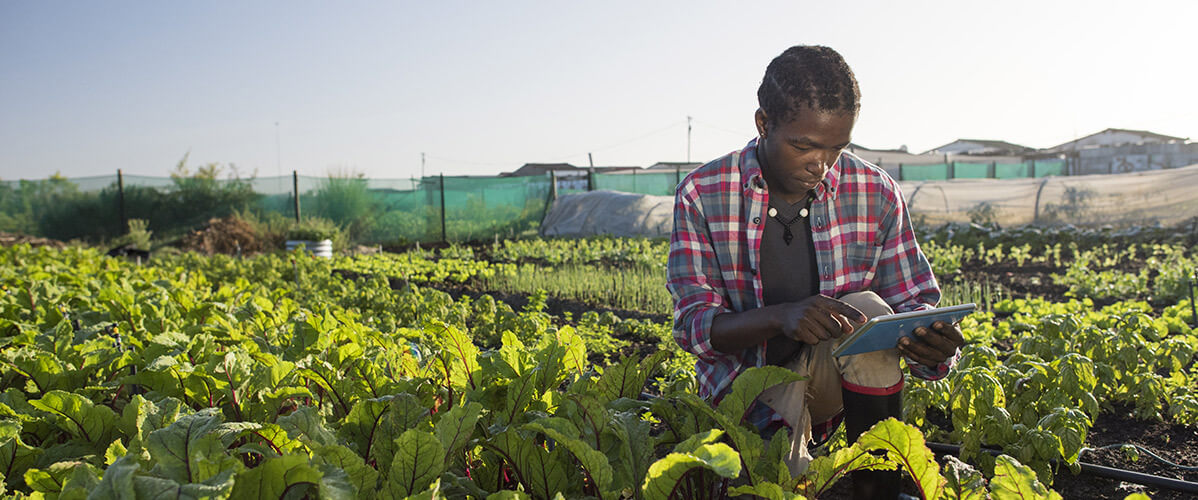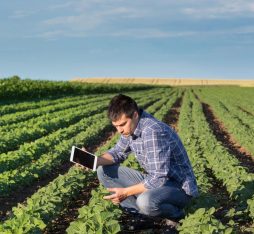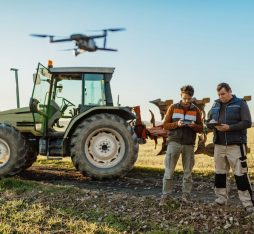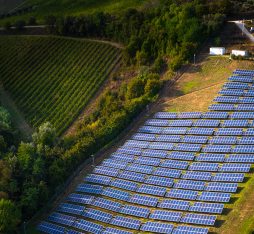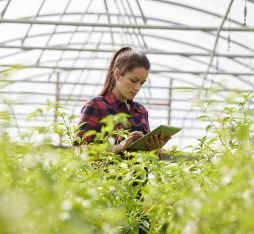In order to support the digital transformation of Africa, thanks to digital, Orange has developed several services.
Agriculture in Africa is a major sector and an important driving force of economic development. It employs between 40 and 65 % of the working population, and makes up around 25 %(1) of the African continent’s GDP. Yet, with 75 %(2) of arable land that is yet unexploited, productivity is having trouble progressing, yields are stagnating, and the income they generate remains insufficient. In light of this, Orange, who is present in 20 African countries, sees a great opportunity with digital to increase the continent’s agricultural potential. The operator has thus developed mobile services, mAgri, that are aimed at farmers, who mainly have two profile types: individual farmers, representing roughly 80 % of the players and who are engaged in subsistence farming, and agricultural, agri-industrial, companies, as well as associations and cooperatives. They all face the same problems: climate change, market access, the proliferation of diseases affecting plants and animals, but also a lack of visibility on market price rates, or information on best practices in terms of cultivation and financing, etc. Adama Dieye, Open Ecosystem Services Manager at the Orange Technocentre of Abidjan, specifies: “To alleviate the problem, Orange has put its technologies and know-how at the service of innovation in the sector. Thanks to our infrastructures and connectivity, our partner ecosystem, and the implementation of different services, we can effectively meet the many requirements expressed by farmers.”
Orange has thus developed offerings that can be put into 5 service categories:
- Information services for farmers
These are the most widespread offerings, they propose push or on-demand paid services (possibly in freemium). In collaboration with various partners, Orange offers information and advice to farmers via USSD, SMS, call centres, IVR (interactive voice response), or websites/mobile applications (chatbot). These services enable farmers to adjust their production according to markets and weather forecast, or to obtain advice on agricultural techniques.
In effect, this information mainly deals with the weather (a key partnership of Orange in sub-Saharan Africa with Scandinavian company Ignitia, who has developed a unique modelling capability in terms of atmospheric forecasting), the price of produce (Orange partnership with the company Rongead), and agricultural, veterinary and sanitary technical advice.
The main Orange services of this type that are marketed today are mAgri in Côte d’Ivoire; Sénèkela, Garbal, and Sandji in Mali; HayVokra (HNI) and Bazar.mada in Madagascar; Labaroun Kassoua in Niger that gives the prices of agricultural goods and livestock on 87 markets; and Naafa Buudu in Burkina Faso.
- Access to marketplaces
These are platforms/sites that put agricultural sellers in touch with the agricultural industry, with production buyers, but also with vendors of equipment and products needed by farms.Examples of user pathways:- Producer/farmer pathway: the producer connects to the mobile or web platform to log in, post their production, its price, their location, and contact details.
- Potential buyer pathway: they connect to the dedicated mobile or web application and contact the producer. This can be done via the USSD API (this is the case of Bashaier in Egypt).
- Commercial negotiations.
- The main agricultural marketplaces to which Orange gives access to its customers are: Bashaier in Egypt, Mlouma in Senegal, Brastorme in Botswana, Bazar.mada in Madagascar, with the agribusiness partner in Guinea Conakry.
- Financial services/Orange Money
Beyond the use of Orange Money (mobile banking) as a means of payment and money transfer both for farmers and the agricultural industry, paid financial services, such as microcredit as well as climate microinsurance and microsavings solutions, are being experimented and developed (for example at Orange Madagascar and Orange Mali):- Payment
- Transfer
- Microinsurance (currently under development)
- Microcredit (currently being experimented)
- Microsavings (currently under development)
- M2M/IoT for agriculture (still at the embryonic stage)
It is one of the most promising elements of development in the frame of crop digitalisation and optimisation, even if it is still an emerging field, many use cases have already been identified, for example:- Water level/quality monitoring, deterrence of predators from water points, theft/health monitoring/weighing management in the cattle industry;
- Optimum harvest date/monitoring, storage humidity management, mycotoxin detection/data collection;
- Early detection of disease for crops, detection of exceeding humidity thresholds;
- Prevention of theft/building intrusion for the poultry industry.
In terms of connected terminals, farmers could rely on connected tractors, robots (weeders for example), connected collars for livestock, and drones. Indeed, agricultural drones enable observation of fields with higher precision than satellite images and provide information such as the amount of fertilizer needed, for example.
- Agribusiness data management
For government bodies, cooperatives, equipment providers, and other operators of the agricultural sector, this is about gathering information in the field on the quality of soil and produce, the environment, but also on farmers’ practices, and all of this automatically or on demand, from the farmer or the field, or yet again from agricultural drones. This data collection can be supported by data collection tools and can enable predictive analyses, which are important for state and sector operator agricultural strategies. For example, the “data collect” tool is currently being experimented in Mali for these types of usage.
Furthermore, Orange’s Messagerie Pro solution could also be used to collect and analyse agricultural data.
The example of Sénèkela in Mali
The Sénèkela offer (which means “grower” in Malian) has been taken up by 400,000 Malian farmers since its launch five years ago. It is comprised of two main services: a call centre available 24/7 that is dedicated to farmers’ concerns, which enables them to talk directly to agronomy experts, in French or in Bambara, the local language. They thus benefit from information and advice on plantation methods, seeds, seedling duration, fertilizers, or animal husbandry, fishing, fish farming, and forestry. Via a USSD service, they can also consult prices – farm gate (minimum price guaranteed for the producer by the government), retail, and wholesale – of all the Mali markets for goods such as millet, corn, rice, or potatoes. To gather this information, the operator has developed partnerships with local stakeholders such as the Institute of rural economy, the International institute for communication and development, and NGO Rongead (an initiative aiming to improve the commercialisation of products from agricultural sectors). For Justin Kouakou, Mobile agriculture Project manager at the Technocentre of Abidjan: “Thanks to its expertise and knowledge of the farmers’ needs, Orange is serving the rural world by offering it innovative and adapted services.”
This initiative is fully aligned with Orange’s ambition to be the partner of the digital transformation of Africa. Adama Dieye concludes: “New technologies are a powerful lever of progress on the continent. In effect, with the mAgri services, farmers can improve their productivity and increase their income.”
1 – AGRA, Africa agriculture status report, 2016
2 – FAO, The state of food and agriculture, 2000

